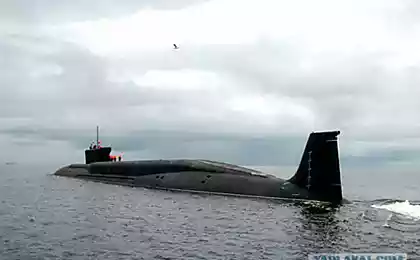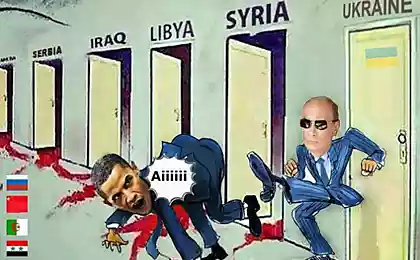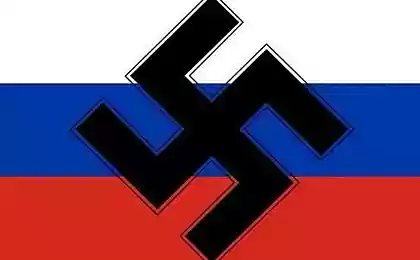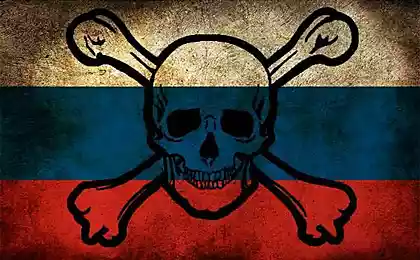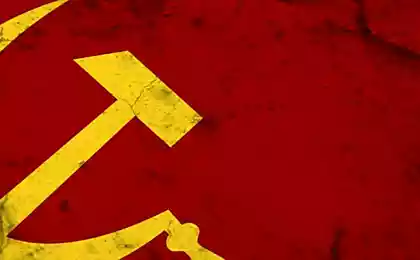926
Experts: the German economy can dispense with facile Russia
In Germany, we calculated that the German economy may waive the Russian
Many German companies have invested in Russia, we wanted to build a manufacturing facility there, and went back down. The German economy, in contrast to Russia, will be able to transfer the sanctions and the decline in trade with Russia.
German companies because of the crisis in the Crimea fear decline in profits in the Russian market. However, experts of the Institute of World Economy in Kiel, procchitav how much would cost the rejection of the trade with Russia, came to the conclusion that the German economy, in contrast to Russia, will be able to transfer the sanctions and the decline in trade with Russia, according to Die Welt, transfers Inopressa .
Some sectors of the German economy will suffer somewhat stronger in the case of complete non-cooperation with Russia. It concerns first of all the companies that sell to the Russian animal fats, oil seeds, fatty foods and sanitary equipment, the article says. A fifth of German exports is directed to Russia fat, in the case of seeds and fixtures on the Russian market takes 6-7% of export products. However, in terms of total foreign trade turnover in Germany, where the share of Russia in 2013 amounted to an average of 3, 3%, the weight of these companies are small. The same animal fats exports to Russia, for example, was only 0, 03% of the total foreign trade, exports of rapeseed and other oilseeds - only 0, 02%. As for the export of vehicles, drugs and machines, it is somewhat above the average level - 3, 9 4 and 8%, respectively. Thus, the study said, the sanctions could hit the private German companies, but not for the whole economy.
One of the co-authors of the study, Klaus Schrader emphasizes that "the Russian market, no doubt, is of interest for German exporters, but it does not fundamentally significant for them." In case of cancellation of trade relations with Russia, he said, the total German exports will decrease by 3, 5%. "Compared with the crisis of 2009, when German exports fell more than 18%, it is almost nothing" - acknowledges the expert. In addition, the study highlights that German exporters, which affect sanctions against Russia, quickly find alternative markets, in contrast, for example, the Russian enterprises. "Russian gas suppliers in the event of the loss of European buyers will be hard to find new, since the gas flowing through the pipes, and a new gas pipeline to China will be built only in 2018" (of course, if he does this year will remain under the jurisdiction of Moscow, not the future Siberian State).
Meanwhile, Germany's dependence on Russian oil and gas could increase, despite assurances from German Chancellor Angela Merkel, made against a background of deterioration of the situation in the Crimea, on the revision of the concept of the German energy policy. Thus, according to the magazine Der Spiegel, German Chancellery and the Ministry of Trade and Industry of Germany agreed not to use the veto against the upcoming billion-dollar deals between Russia and Germany. In particular, we are talking about buying a subsidiary of the German company RWE - company Dea - Russian oligarch Mikhail Fridman, as well as the continuation of cooperation of "Gazprom" with the German Wintershall, a subsidiary of BASF.
In general, it said in another material Der Spiegel, the Crimean crisis is already beginning to have a negative impact on trade relations between the two countries. "Many German companies that invested a year ago to Russia or want to build there own production facilities, abandoned their plans or suspend them," - said the head of the Moscow branch of the German Trade and Investment Bernd Hones. German firms to Russia, he said, now exhibit extreme caution.
It adds the publication, it concerns both sides. German companies also have the impression that the "Russian industrial concerns considered politically correct not to do business with companies from Germany."
Source Your text to link ...
Many German companies have invested in Russia, we wanted to build a manufacturing facility there, and went back down. The German economy, in contrast to Russia, will be able to transfer the sanctions and the decline in trade with Russia.
German companies because of the crisis in the Crimea fear decline in profits in the Russian market. However, experts of the Institute of World Economy in Kiel, procchitav how much would cost the rejection of the trade with Russia, came to the conclusion that the German economy, in contrast to Russia, will be able to transfer the sanctions and the decline in trade with Russia, according to Die Welt, transfers Inopressa .
Some sectors of the German economy will suffer somewhat stronger in the case of complete non-cooperation with Russia. It concerns first of all the companies that sell to the Russian animal fats, oil seeds, fatty foods and sanitary equipment, the article says. A fifth of German exports is directed to Russia fat, in the case of seeds and fixtures on the Russian market takes 6-7% of export products. However, in terms of total foreign trade turnover in Germany, where the share of Russia in 2013 amounted to an average of 3, 3%, the weight of these companies are small. The same animal fats exports to Russia, for example, was only 0, 03% of the total foreign trade, exports of rapeseed and other oilseeds - only 0, 02%. As for the export of vehicles, drugs and machines, it is somewhat above the average level - 3, 9 4 and 8%, respectively. Thus, the study said, the sanctions could hit the private German companies, but not for the whole economy.
One of the co-authors of the study, Klaus Schrader emphasizes that "the Russian market, no doubt, is of interest for German exporters, but it does not fundamentally significant for them." In case of cancellation of trade relations with Russia, he said, the total German exports will decrease by 3, 5%. "Compared with the crisis of 2009, when German exports fell more than 18%, it is almost nothing" - acknowledges the expert. In addition, the study highlights that German exporters, which affect sanctions against Russia, quickly find alternative markets, in contrast, for example, the Russian enterprises. "Russian gas suppliers in the event of the loss of European buyers will be hard to find new, since the gas flowing through the pipes, and a new gas pipeline to China will be built only in 2018" (of course, if he does this year will remain under the jurisdiction of Moscow, not the future Siberian State).
Meanwhile, Germany's dependence on Russian oil and gas could increase, despite assurances from German Chancellor Angela Merkel, made against a background of deterioration of the situation in the Crimea, on the revision of the concept of the German energy policy. Thus, according to the magazine Der Spiegel, German Chancellery and the Ministry of Trade and Industry of Germany agreed not to use the veto against the upcoming billion-dollar deals between Russia and Germany. In particular, we are talking about buying a subsidiary of the German company RWE - company Dea - Russian oligarch Mikhail Fridman, as well as the continuation of cooperation of "Gazprom" with the German Wintershall, a subsidiary of BASF.
In general, it said in another material Der Spiegel, the Crimean crisis is already beginning to have a negative impact on trade relations between the two countries. "Many German companies that invested a year ago to Russia or want to build there own production facilities, abandoned their plans or suspend them," - said the head of the Moscow branch of the German Trade and Investment Bernd Hones. German firms to Russia, he said, now exhibit extreme caution.
It adds the publication, it concerns both sides. German companies also have the impression that the "Russian industrial concerns considered politically correct not to do business with companies from Germany."
Source Your text to link ...






